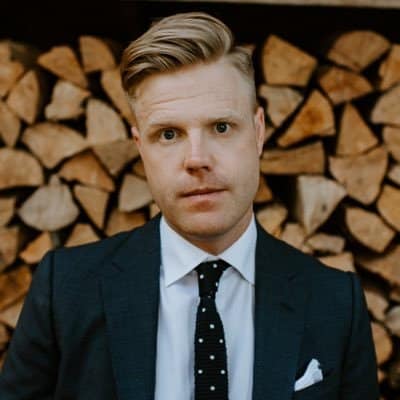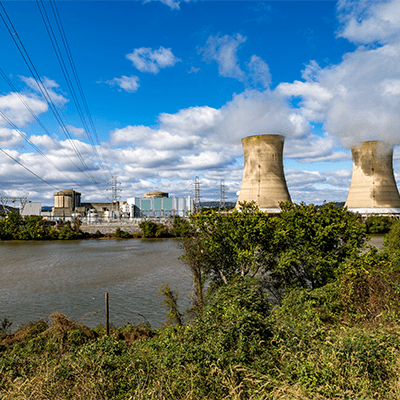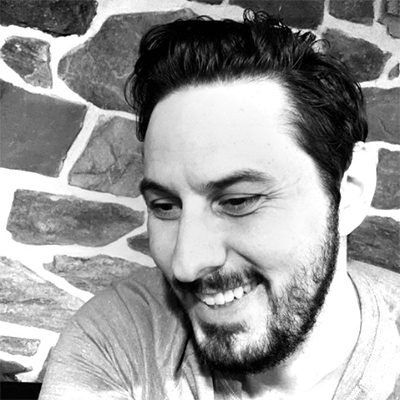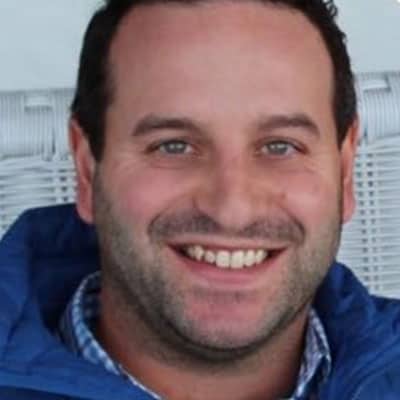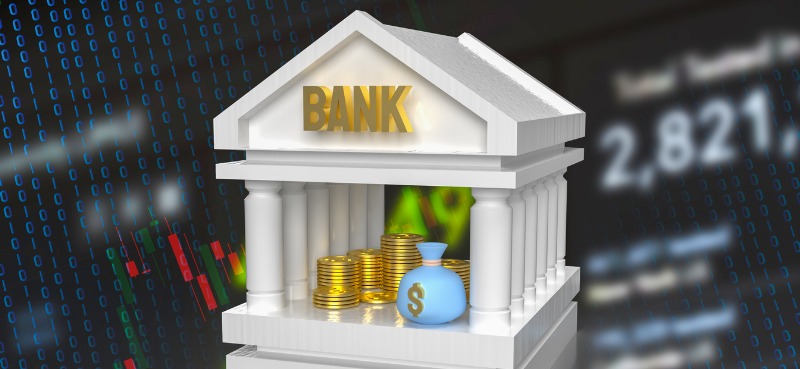As a short seller, I always enjoy looking at the mining sector. It’s a great place to find some overhyped bullsh*t.
To hear some mining executives tell it, they have THE PROJECT that will pave the way to riches for investors…
If there’s a sector that requires due diligence and a skeptical eye, mining is it. Today’s guest is Jamie Keech, mining engineer and co-founder of Resource Insider. Jamie shares what he looks for in resource companies, as well as interesting opportunities he sees right now [6:06]… He’s chock-full of fascinating tidbits.
The Mike Alkin Show | 67
Buyer beware in the natural resource sector
Announcer: Free and clear of the chatter from Wall Street, you’re listening to Talking Stocks Over a Beer hosted by hedge fund veteran and newsletter writer Mike Alkin, who helps ordinary investors level the playing field against the pros by bringing you market insights and interviews with corporate executives and institutional investors. Mike sifts through all the noise of mainstream financial media and Wall Street to help you focus on what really matters in the markets. And now, here is your host Mike Alkin.
Mike Alkin: It’s Monday, July 22, 2019. Hope you had a nice weekend. Today is my 25th wedding anniversary and my wife, we were joking with some friends while we were at dinner last night, she’d “yup, 25 of the best years of my life, piece of cake, especially married with- to him.” We all chuckled as she said it. You know laughing about Mike World, Mike Land, where, when I’m engrossed in my work sometimes, I learned last night, while I was engrossed in the conversation with everyone at the dinner table, that I do have the occasional time where I might tune things out when I’m engrossed in work. I was reminded that … which I don’t need to be, that thank God, behind every good man, there’s a better woman who certainly keeps my family and my house ticking and running smoothly. Lord knows if it were left up to me, things might be forgotten once in a while. But anyway, that’s 25 years today. I don’t know about where you guys are, but this weekend was, I mean it was stunningly hot.
Mike Alkin: I’ve lived in Tucson, Arizona, I’ve lived in Dallas, Texas, Houston, Texas. New York summers are nor- yet this weekend was hotter than anything I’ve experienced. It was really only 100 degrees on the thermometer, but it was, with the heat index it was 108, 110 and it was absolutely just breathtakingly hot. I know if you’re in parts of the country that get that regularly, you say, “ah, it’s not that bad.” There was something about this where, that it was the humidity was through the roof. No breeze to be found and I think, I think Saturday got to me a little bit where we were.
Mike Alkin: Had a niece graduate from high school and we were at their home and they have a lovely pool outside, but even that didn’t cool anyone off and their AC had gone down. So it was one of those where it just, with a lot of people and a lot of heat, it was take your breath away hot. Oh and that continued into yesterday, I think we’re going to get a little reprieve, but here in the Northeast, we get occasional heat waves in the summertime and a little hot weather once in a while, but this was, this was beyond the pale. I am not a summer guy, I’m good for, by March, I’m internally complaining a little bit to myself saying, God I just wish it would get a little bit warmer and I love the spring. Love the fall. Love the winter. Summer’s my least favorite of them all and I will … I tolerate it, but by the second week of July I’m ready, I’m done. You can send the heat back and bring on the crisp days and stuff like that.
Mike Alkin: My family, they like the beach. My kids, my wife, very, very beach oriented, so and I do it. I muddle through it, we’ll go down there on the weekends once in a while and once lacrosse is over. Yesterday I had some work to do so I was at home during the day and my wife took the kids and some of their friends down to the beach, and they said actually it was quite nice. Because sometimes you go down there and for whatever reason, even though you’re in the water and stuff, it still makes it … it’s still hot as hell, but she said it was nice relief while I was in my office at home cranking a few things out, so … but anyway, hopefully the cool weather comes and we’re good to go. I was … I’ve been reading a lot of stuff that comes out of my friend’s Chris MacIntosh’s shop, Capitalist Exploits and his … he’s got a new publication, not new now, probably within the last year, Resource Insider and run by Jamie Keech who’s a mining engineer and read a lot of their stuff.
Mike Alkin: I thought it was really interesting and I wanted to get him on and kind of get his thoughts and recap what’s going on and his view of the space, and we’re going to bring Jamie on now. What made me think about it is one of the CEOs was recently, talk about tough weather, he’s recently doing a field visit of some private company, he’s a private company who was doing a field visit up in Canada and they’re out in the field and just banging some rocks with some picks and showed … sent me a little video and in that, you could … they had it where the nets, because the bugs were so bad, and I thought, okay, we got the heat here, but I don’t have to deal with that, so anyway, we’re going to get Jamie on and pick his brain and see what’s going on in his view of the world natural resources.
Mike Alkin: Jamie Keech, how you doing pal?
Jamie Keech: I’m good mate. How are you today?
Mike Alkin: I’m good man, thank you. How’s the summer going so far?
Jamie Keech: Yeah, it’s good. It’s been busy. I got married this summer, so that took up a bit of time and been running around and looking at some sites and trying to get the odd day off at the beach here in Vancouver.
Mike Alkin: Yeah. It’s interesting, right? So new marriage, new business, you got a lot of new stuff going on.
Jamie Keech: I know, I know. Been a hectic year actually. I’ve … I work, I don’t have an office in my home like you and all my friends give me shit all the time because they say how can you be so busy, you’re just sitting at home all day typing on your computer, and I’m like, no, no, there’s actually a lot to do, not as easy as it looks. I know I may be sitting there in shorts and a tee-shirt, but there is a bit more to it.
Mike Alkin: Well you know it’s funny, we have an office about 20 minutes from my house and it’s in a nice jarring little town and it’s good. I so enjoy working from home instead because who says you have to shower at 7 AM or 6 AM?
Jamie Keech: Or all day sometimes?
Mike Alkin: And then even when I do go into the office, it’s … right? When you’re the boss you can dress however you want. But that’s great. So for those who aren’t familiar, you’ve been on the podcast before, but why don’t you share with listeners who may be hearing this for the first time or hearing about you for the first time, give us your background.
Jamie Keech: Yeah. So my name is Jamie Keech as I said. I am the co-founder of a service, a research service called Resource Insider, and I can get into that in a minute, but my background is essentially I am a mining engineer. I have a undergrad and a Master’s in Engineering. I worked all over the world on different mining projects, everything from exploration in South America and Albania, and I was building coal mines in Mongolia and then I spent a few years up in the Canadian Arctic helping to build an iron ore mine. But, prior to this, the last three year- three years prior to doing what I do now, I actually worked in corporate development. So, for those not familiar with that term, that’s sort of a combination of finance and technical evaluation, looking to buy new projects.
Jamie Keech: So I worked for a company that ended up becoming Equinox Gold, that’s a big-ish company here in Vancouver, about 700 million dollar market cap, and we took that from when I started about $20 million, and grew it through very aggressive acquisitions and mergers, and brought on a great team, it’s now chaired by a gentleman named Ross Beaty, who’s one of the most successful mining entrepreneurs ever, a multi-billionaire. It was a really, really great experience. I really, was a bit of a trial by fire for me. I came from a pretty strong technical background, but when I started, I knew nothing about finance, I knew very little about the stock market, and that was obviously a big part of this role and it was great to learn from those guys and I learned so much that I wanted to focus on that full time and I wasn’t interested in going back and working on a mine site again or being in a purely technical role, which is what that job was shifting to as the company got bigger.
Jamie Keech: So I started Resource Insider with my now partner, Chris MacIntosh. We basically, we do … I do that same job now, but I do it for our subscribers. I go out and I look at good opportunities to buy in the mining, metals, and energy space. I put my own money in, my partner Chris puts his money in, and that’s it. We’re looking for great deals and things that we think will grow in value and make us and our members money.
Mike Alkin: So, what are some of the things you learned, so you’re in the field all these years, you cut- you have an engineering degree, you’ve learned the nuts and bolts of mining, and you’re in some far fun places, some more exotic than others, some more interesting than others, and some more tolerable than others. I would assume.
Mike Alkin: So, so you do that now, but now all of a sudden you’re in business development, you’re seeing kind of how the sausage is made from the other side and what are, in that transition, what are … can you think of some of the things where you’re like, huh? You wouldn’t even think about this in the field, we’re just worried about where you put these pipes and the shovels and all this other stuff. What stood out to you? Do you recall like huh, this is kind of bizarre.
Jamie Keech: Yeah, I mean the first thing that stood out for me that I was no longer living in a shipping container in the Gobi desert anymore. I could buy a coffee, go home and sleep in my own bed, and that was worth a bit of the pay cut that I took at first, I can tell you that. But, from a more, on a serious note, when you’re actually working in the field, you think that if you build a good mine, or you do your job right, things will just work out and the company will be worth a lot of money. There’s a disconnect from, or I had a disconnect rather from that pure technical work to how things often play out in real life. And the other somewhat softer or more nebulous factors that are involved in the success of the company from an investment perspective.
Jamie Keech: What I mean by that is, I had no concept of how important it was to structure a company in terms of who the shareholders were, the number of shares outstanding. I had no concept of how important senior management was in the ability to instill faith in the market to promote a story, to actually sell the ideas and market the company.
Jamie Keech: Those were all things that I was not exposed to whatsoever, and I wasn’t exposed at all to the idea of growing through mergers and acquisitions. I mean, in mining, you see several single asset companies and it’s very, very challenging for those companies in general to get access to capital cheaply and it’s hard for them to compete to get other assets, and to grow from a single asset company to a multi-asset company can often be a very Herculean step without the right people involved and a bit of luck and good decision making. Seeing how that is done was something that was very, very valuable to me.
Mike Alkin: Valuable in the sense of value said huh, I see this, it’s helpful for me to see how it works or did you see as time went on, inefficiencies in how it’s done or what did it open your eyes to about how the sausage is made from the banking side, from the finance side. What surprised you?
Jamie Keech: I guess what surprised me, I would say, is that it’s often a game of compromises insofar that it’s a trade off if you’re trying to grow a company. It’s not always just go out and buy the best thing you can find or discover a new mine and develop it. It is … you have a certain amount of money, you have access to capital, your team has a certain expertise, you have a range of assets that are … fall into something that you could develop or add value to. It’s a matter of finding what you can get or taking what you can get and finding creative ways to actually eke value out of those things and grow it.
Jamie Keech: I mean, it’s very easy for a … what have you, a Barrick or a Newmont to go out and buy whatever asset that they want if their engineers and their geologists say this is the one we need, they have access to so much capital at such a cheap price that they can just take it. For the companies at the junior end of the scale, there is a lot of creativity involved in growing the company, and there are different strategies. There’s growth through exploration, which is obviously the highest risk, but also the cheapest. There is purchasing developing assets which some people have done very well, normally those who have cheap access to money.
Jamie Keech: Then there’s the attempt to buy operating mines. Typically, the operating mines that are for sale, are the ones that somebody else doesn’t want, right, by its very nature. So, you’ve got to be able to look at that and say, how can I make more out of this than it’s currently doing? How can I improve this? That is very hard because most of the time the companies you’re buying for, they’re not … sorry, the companies you are buying it from, it’s not run by incompetent people, it just might not be one of their priorities. It might not be their A team on it, or it might not have the size or life span that fits into that company’s growth portfolios. You got to figure out is there a way that I can really eke value out of this for us, for where we are, and then use that and leverage that asset base and excess cash to grow from there. So that was a lot of what we were thinking about and looking at.
Mike Alkin: So, and that’s … yeah, I guess in any industry, if you went from operations into the finance side, you’d have an eye opener. Now you’re in the mining industry, and I’m always, I keep a little note posted to my computer screen that says, “a mine is a hole in the ground with a lair standing next to it.” Mark Twain.
Jamie Keech: Say that’s relatively accurate, yes.
Mike Alkin: Yeah, yeah. I know just always is a reminder, and of course not all companies are like that, but when you’re in the … when you’re in an industry that is very capital consumptive, because you are doing a tremendous amount of exploration and development in, especially on the exploration side where most exploration doesn’t yield anything. So you have to dress it up and make it look pretty, and try and raise capital, and I beli- not all, but I believe many of the management teams believe that what they are shooting for is going to yield something.
Jamie Keech: Yes.
Mike Alkin: You do have some charlatan’s like in any industry. In mining space you tend to have a few more probably, but it’s … so, how do you … I guess as a mining engineer, it puts you at somewhat of an advantage to be able to look at projects and say, huh, that just doesn’t pass the smell test right away or … how do you apply your prior life to what you’re doing now with respect to that? And the reason I ask is, I was at the Vancouver Conference in 2018, and I saw your talk, and it was how you got screwed in 2018, and I thought it was like a seminal piece of work for a guy from industry talking to people saying listen mister investor, miss investor, here’s how you can get run over. So, so how do you marry your experience with what, when doing on the engineering side with looking at projects.
Jamie Keech: Yeah. So, my view of mining, and one of the problems … one of the problems and interesting aspects of it, is that it self-selects for extreme optimists. To, especially in the exploration stage or in the entrepreneurship path, to have the gumption, or the inclination to go and do that, you have to be extremely, extremely optimistic. I mean, just statistically, the chances are so not in your favor, that you have to be willing to take extreme chances. It only selects for people who believe beyond a doubt what they’re saying even when all the numbers are stacked against them. The problem is, there’s an extreme survivorship bias. Meaning that we only typically ever hear about the ones that it works out. There is always that story of the guy that bought a stock at a penny and sold it for $100 or whatever it is, and people see that, but that guy [crosstalk 00:18:52]
Mike Alkin: [crosstalk 00:18:52] And repeat it, and repeat it, and repeat it, right?
Jamie Keech: Yeah.
Mike Alkin: When there as reasons as to why they should do something.
Jamie Keech: They don’t see the corpses of washed up mining promoters littering the streets of Vancouver on a day to day basis, and they’re out there. There’s people that are trying all the same moves, but with no success. Part of that is incompetence, and part of that is just bad luck because most people aren’t going to make it, even if they do the right things, even if everything does look good on a project from an early stage. The other aspect is, like any venture industry, there’s so much opacity, in terms of a project or an idea, that it gives a lot of leeway for the would be charlatan or scam artist to thrive there in a way they can’t in a lot of other industries. So, get back to your question, how I actually look at that, I mean, really it’s three things. It has to be technical, financial, and people. It’s very simple. Technically, I’m in a good position to actually have a good idea of whether these projects are going to work or not.
Jamie Keech: I’ve worked on a lot of different projects, I go through the technically available information in detail, and more importantly than that, I pull a lot of very knowledgeable and very successful technical people. I don’t claim to be a geologist, I don’t claim to be an expert on every type of deposit and every type of mining. However, I probably do know an expert on every type of deposit, and every type of mining and I never make an investment my own money before talking to the people that are familiar with that part of the world, with that type of deposit, and with the people involved in it. Financially, it has to be set up … a company has to be set up in such a way that shareholders at least have a chance of succeeding, and this was a big part of what I had talked about at the VRIC deposit, or the VRIC conference insofar that how people get screwed in 2018.
Jamie Keech: People tend to get screwed because they’re playing a rigged game. Exploration is hard, often it doesn’t work out and people lose money and that’s okay if everyone does what they say they’re going to do and the thesis doesn’t prove out. But, if the company’s structured in such a way that the management is getting millions of shares for a fraction of a penny prior to doing any work, and then they go public and sell those same shares to their would be shareholders at 10 cents, at 25 cents, at whatever it is they can get away with, that management team has already made a fortune. And what that means is that, even if the share price is crushed, even if it’s halved or it’s 10% of what they went public at, they’re still making a lot of money. So, it’s really a no lose game for people in that situation and that is something investors and myself are, try to be very aware of. Because you want to see that investors are coming on, rather, investors are coming in on similar terms to management.
Jamie Keech: I don’t think that management … I think that management should be rewarded, given that they’re taking the risk, they’re maybe putting careers on hold at banks or big companies to go out and launch their own venture, and there should be a big upside for that. But it shouldn’t be in such a way that they win regardless of success. Good example of a company that I think does it right, is where I used to work, Equinox Gold. Ross Beaty- the management team, Christian Milau, CFO, COO, they all bought into that company for very, very significant amounts of money at $2. The highest that that stock had ever been. They’re trading around $1.30 now. You know that that is a management team that is extremely motivated. Most of their shareholders actually got in at cheaper prices than they did. So, they want to have a win, and they’re not going to win unless shareholders win.
Jamie Keech: The final thing I said is people. This is kind of a nebulous one and hard to quantify, but you want to be investing in good people that are going to do the right thing. To our point earlier, there are a lot of charlatans in this space and it’s … unless you’re incredibly savvy about how these things work, it’s very easy to get taken advantage of and have no idea that’s happening. So, I typically invest almost, probably 90% of the investments I’ve made in this space are into the companies of people that I know personally, and I know how they operate, I know how they make decisions and I know they’re honest. For those of you at home who either don’t have that luxury of knowing a lot of these management teams, I would say, invest in people that have a proven track record of doing things right.
Jamie Keech: There’s a very, very, very clear Pareto’s principle at play here in the mining space. The 80/20 rule as it’s common called, and I would say it’s more extreme than that. Probably five percent of the people in mining create 95% of the value, and it’s very easy to find those people. It’s the Ross Beatys, it’s the Lukas Lundins, it’s the Richard Warkes, there are several teams out there that have managed to do, to beat the odds on by in order of magnitude and I knew one fund in New York, as far as I could tell Mike, their only investment strategy was to invest in things that Eira Thomas and Lukas Lundin were doing, that’s it. You know what, they probably out performed for the market, yeah.
Mike Alkin: That’s interesting. So how … so you do that presentation, and which was great, it was very well received, and at the time you’re launching a new business that is focused on mining and focused on helping people get a seat at the table with certain private investments. How is well- How is it received in Vancouver amongst the mining folks?
Jamie Keech: Okay I probably should- [crosstalk 00:25:05]
Mike Alkin: [crosstalk 00:25:05] You live in Vancouver too.
Jamie Keech: Yeah, I know. I probably shouldn’t say this, but I’m going to say it anyways, it was very funny. I was expecting a lot of blow back on that speech, and I was kind of trying to keep my head down after that, and then about a week or two later I bumped into … it all happened a few days in a row, I bumped into people, one of them at a bar who will remain nameless, but is exactly the kind of person that I was thinking when I gave that speech. And he came up to me and he said, “Jamie, really good work, we need more people like us in this industry sit and bringing attention to that sort of issue.” And I was just, “oh, um okay. Good, thank you.” But it goes to show you, no one, and this comes down to a lot of what I view in both life in general, but investing is that, no one thinks they’re the bad guy and no one thinks that, that’s … you should never underestimate someone’s ability to convince themselves that what is best for them is also the right thing.
Jamie Keech: I think that’s what most people do, I don’t think they go out and they have a malicious attitude and say we’re going to screw people over, I think, they’ve got a wife, they’ve got kids, they’ve got bills, they, you know housing in Vancouver’s insanely expensive, they have an opportunity to make a lot of money potentially, and that’s a very, very, hard thing to say no to.
Mike Alkin: Well it’s funny, your partner and my buddy, Chris MacIntosh, I laugh because Chris lets it rip sometimes and I can only imagine … I would imagine in the last year there’s been a time or two where you’ve had to say please tone it down with your view on certain things because he … Chris is, he’s like me, he’s a little curmudgeonly and cynical and I would imagine that you’re the one who’s there in ground zero in Vancouver.
Jamie Keech: Yes.
Mike Alkin: And he’s in New Zealand.
Jamie Keech: Chris is less concerned about developing and maintaining productive relationships than I am, let’s say that.
Mike Alkin: Okay, so the resource space is big and vast and you have a lot of choice and you’ve had exposure to different commodities, so as you were laying this out a year ago when you started Resource Insider, you could look at gold, you could look at zinc, you could look at copper, lead, nickel, you pick it. How have you morphed into …
Mike Alkin: By the way I should disclose by the way, Chris and Jamie and Resource Insider are investors in Sachem Cove, which is the investment vehicle that I run for uranium. So, they put their money where their mouth is on that. But how did you guys decide, how do you, not you guys, but how do you decide where you’re going to go, because let’s talk about the world of resources, natural resources. I mean it’s vast, and different cycles at different times, how have you been able to focus? What was the game plan going in and how have you seen it morph?
Jamie Keech: Well, that’s a good question, and Chris and I complement each other very well in this because Chris has, Chris is a generalist macro investor. He has a very macro view of the industry and where he wants to focus in the world and in specifically in different commodities. I am, on the other hand, I’m almost the exact opposite. I’m a very micro investor. I have probably 90% of my portfolio is in the mining space and I would not recommend that to anybody else, but that’s sort of where I live and breathe and where I am most confident and comfortable making money. But, I am almost commodity agnostic insofar as I think the company, on an individual level is going to succeed.
Jamie Keech: So we’ve been able to pair that very, very well and when we started this business, the idea was, look it, we’re going to look anywhere that we can find value in natural resources. Doesn’t matter if it’s gold or lithium, or graphite, or uranium, or whatever. Now, how that’s actually played out, the majority of our investments so far, I would say, just over 50% have found a home in gold. We’ve done copper and zinc. We’ve looked at, obviously uranium with you and then I’ve been looking very hard at battery metals, particularly lithium at this time.
Jamie Keech: The reason for that, it’s actually quite simple, especially from a micro perspective. Our, the sandbox where we play and I have the most sort of bang for my buck, is in these micro cab companies that are either at the exploration stage, or they’re new development or operating companies. I know the management teams there, I know how these companies operate, I’m very competent at evaluating these deals, and I live in Vancouver, which is the home, it’s sort of the venture capital home of the mining industry. So we’re looking for startup stage companies or struggling companies that are about to get a new injection and a new lease on life. The majority of those companies are in gold. That’s the reality of how it is. Something like 70% of all exploration dollars goes into the gold sector. There are a few reasons for that, one of them is, it just tends to be cheaper to discover and develop a gold mine than it does for example a giant copper pour free mine.
Jamie Keech: After gold, there’s copper, and then after that, it’s the exploration dollar and start up dollars are very thinly spread amongst the other commodities. So that’s … our investing has really paired the opportunities we found available and beyond that I actually love gold right now, we’re seeing it finally in the market having a bit of a run. It’s well over $1,400 now and I don’t think that equities have caught up to that in any way, so that is going to be the focus of our portfolio for at least the coming six months and then we’re also developing out in copper and as I said, battery metals right now and spending a lot of time on lithium.
Mike Alkin: So going back to people think for a second, so not everyone is Ross Beaty or Lukas Lundin in some of these actual startups and stuff like that. How do yo- what is it that you see in somebody if they don’t have that proven track record that makes you think that it’s … gives you want to green light a project?
Jamie Keech: We’ll have to get sort of philosophical here. No truthfully, we just did an investment into an awesome little company called King Fisher Resources. It is almost, you wouldn’t find an investment like this anywhere else, I don’t think. It was two guys, young guys in their early 30s, two geologists, one of them with a very good technical background, one with a very good corporate background. They had worked different jobs for different companies, they were very expert on the geology of British Columbia and the Yukon, and they had been dreaming of starting their own company for 10 years. One of them, who I’ve gotten to know, I consider him a friend now, his name’s Dustin, he’s the CEO of the company, he went out, flew out in a helicopter to the middle of nowhere after identifying this ground, spent weeks out there, staked it all himself, raised … he funded all the costs associated with getting it registered and getting it set up, all by himself. Tens and tens of thousands of dollars for a 30 year old geologist, and then he started going around Vancouver and pitching this project, and essentially begging anyone that would listen for money to fund this thing.
Jamie Keech: To do that on your own as a 30 year old in the worst bear market in, I don’t know, probably history, is really, really impressive to me. It got on my radar because a colleague of mine, who is a phenomenal geologist and extremely successfully in his own right, he came across this and Dustin pitched him and he was sort of blown away by this land package from a technical perspective. It’s huge, it’s 50 kilometers by 10 kilometers, which is British Columbia, is unbelievably massive. It has lots of historic work on it, it’s got a bulk sample that was very perspective, and for a variety of sort of political and structural reasons, this area had been forgotten by the wider mining community. The challenge was that it had been divided into these tiny little land packages, which of themselves are very, are not very useful, because you need size, you need scale for an exploration budget like this.
Jamie Keech: Dustin had painstakingly put them all together into something that is now extremely interesting. So, I got introduced to him and they were looking for $900,000 to start this project. Now they weren’t paying themselves any salary. They don’t have an office, they’re doing … all the money is going into the ground. It’s private so we raised the money and right now as we speak, he’s out there for the next three weeks, doing all the exploration by hand. We’re hoping that we can put all the pieces together so that they can go public next year and start off reading like a real company. So this is what I look for in someone that doesn’t have a proven track record. Someone that is desperately hungry to get out there and do this and isn’t waiting for permission from somebody else. I don’t want someone that is looking at that as a job, I want someone that this is their dream and goal in life, and he’s going to kill himself to make it happen. And that, I think Dustin is a prime example of.
Mike Alkin: That’s a great answer. I found that very interesting. Go back to lithium, what’s peaking your curiosity there, how deep are you going, what are you doing?
Jamie Keech: Well, most recently I was down in Peru looking at a lithium project that really did strike my interest. It’s called Plateau Energy, and Mike you know it well because I was down there with a close colleague of yours for slightly different reasons. But, I got … the CEO of the company is a gentleman named Alex Holmes and I went down not really knowing what to expect. What Alex did do is make a strong case for the scalability of lithium. I think, when I look at the world, I don’t see there being less batteries in the next 10 years. I don’t see us not needing more electricity. I live in Vancouver, and I can’t remember the date they said, something ridiculous, but the mayor was saying the other day, I think it was 2025, but doesn’t matter. He was saying, we’re going to be a city completely devoid of gasoline and fuel burning cars, it’s going to be all electrical. Now, whether you believe that is true or not, which I don’t, but whether you believe this or not [crosstalk 00:36:27]
Mike Alkin: [crosstalk 00:36:27] Did he go to the Elon Musk school of promotion?
Jamie Keech: Oh God, probably. This is a bit of a plague in Vancouver. These left leaning mayors that overpromise the green world. But, for that to even come close to happening, not only would our electrical grid need to be magnified by an order magnitude, that means, how … I can’t begin to wrap my head around how many vehicles would need to be replaced and how many batteries would need to be made. So I started thinking about lithium a lot and have been for the last couple years. But, one of the challenges with these brine projects is scalability. I kind of think of it like, it’s like you’re sucking a liquid out of the ground and you’re really dictated by the size of the straw you have in it. There’s a maximum draw down rate that you can get these things out there and because of that, there’s a maximum size that they’re able to be. Challenge with that is they’ll always be relatively small operations and there’s a maximum value they’ll be able to create, and it almost precludes them from being considered by a major mining company.
Jamie Keech: Now, I happen to know that major mining companies, a lot of them are sniffing around lithium projects and trying to figure out a way to get into that space. To do that, there probably isn’t going to be brine operation, which we’re seeing the most of now. It’s probably going to be some sort of hard rock operation. So, Plateau Energy has this massive lithium project in Peru, I should say massive perspective lithium project because it’s not proven out yet. But, if they’re able to do what they say they’re going to do, this is one of the few projects that I’ve seen that could be mined like a traditional mining operation, which means it is highly, highly scalable. Which means it is much more valuable over the scheme of its life and will be much more appealing to a major mining company and therefore will be much more susceptible to be taken out at a much higher evaluation. So, that’s something that I’m thinking about right now in terms of lithium.
Mike Alkin: Okay, thank you, that’s helpful. So talk about Resource Insider, how its evolved over the year, where it’s at now, and project wise, what’s exciting you.
Jamie Keech: Yeah. So, Resource Insider started with a very nebulous claim, that I was going to go out and I was going to find the best deals we could find and I was going to invest alongside my members at the same prices and we were going to find good opportunities to put our money into. We’ve done exactly that, but we’ve gotten more specific in the sort of things that we’re looking for. Still, to this day, the number one priority is an alignment of incentives. Anything that we cover in our letter, I come in at the same price as all my subscribers and we try to keep our incentives fully aligned so that they know that I’m working for them and that I don’t really make any money unless they do. This just comes back to what we were talking about earlier, in keeping yourself honest and not giving yourself the opportunity to do the wrong thing, and that’s very important to us. But, what we are really focused on now is really, I would say, two different styles of investment.
Jamie Keech: We’re looking at seed round stage, catalytic capitals. So what I mentioned before with King Fisher, a private company where we’re able to come in very, very early, be the first ones on the ground, add that first dose of capital on the same terms as the founders, that’s where we like to be, because we know if we’re getting in the same price as the founders, if it’s still private, there’s hopefully an IPO event in the future, we’re going to hopefully see an uptick from that, and we know that management’s going to be motivated to get that share price up. The other thing we do look for is just cheap deals on the market in private placement opportunities typically that have big, fat, long dated warrants. So, companies that will have, will be financing hopefully at a discount. I’d like to see probably 15% discount to what they’re trading at and then a full warrant for a minimum of two years that I know is going to just really, that will give me a lot of options with that company.
Jamie Keech: So I’m hoping that obviously the share price will go up, but even if it maintains, we’re able to sell our stock and build up a bank of warrants that will keep exposure to those companies down the road.
Mike Alkin: So, for those who are listening, Jamie, for those who may not be familiar with building a warrant bank strategy, won’t you just dive in a little bit more, and for those who may not be familiar listening to the podcast, with warrants, it’s something that we employ and fund some, a few, not a lot, uranium companies that are looking to raise capital, and they issue warrants, but we’re pretty difficult to get capital out of, but we do, some of them. Why don’t you share with listeners why you do that and how the warrants work.
Jamie Keech: So, a lot of these companies that are already publicly listed, they’re already operating, often they find themselves in a position where they need more cash. What they’ll do is called a private placement, or a pike, and they’ll raise money, they’ll raise money by selling equity to accredited investors or to institutions of some sort. Often what they’ll do in this situation is they will sweeten the deal, so they’ll do things like offering the stock they’re selling at a discount to what they’re currently trading at, or as I was saying before, they will offer a warrant.
Jamie Keech: A warrant is, I think a thing most investors have never come across before, but it’s fairly common in the mining space to help incentivize this catalytic capital. How it works is, how do I best explain this? It’s essentially an option to buy a share at a given price down the road. So, if I buy into a stock that is a dollar, it has a unit and that unit is consisting of a share and a warrant, it means if the stock is at a dollar and the warrant is at $1.50, it means as soon as the share price goes above $1.50, my warrant goes into the money and I get the value for it, I can cash in on that warrant on anything over $1.50. So if it’s $2, that warrant is worth 50 cents, if it’s $2.50, that warrant is worth a dollar. Basically, it only is ever worth anything if the company is successful, but if the company is successful, it really magnifies your returns.
Mike Alkin: Well described. Okay, so you’re doing those deals, you’re doing warrant deals, you’re doing … you’re trying to get the best price possible for people, so what are … how about- can you talk about anything that’s exciting and interesting to you now? I know you, I’m sure you have to be somewhat proprietary, but what’s striking your fancy now?
Jamie Keech: Well I’ll start by saying that all the deals we do participate in, you have to be an accredited investor. Particularly in the US, this means you make over $200,000 a year for the last two consecutive years or you have over a million dollars in assets, not including your primary residence. So, this is the criteria set by regulators to participate in these types of things. It’s why we keep our lists quite small and selective, but what we’re focused on right now is actually a seed round opportunity in the gold space, which I’m really, really excited about. We spent a lot of time trying to figure out our next deal, we saw lot of opportunities, we did the math on it last week I think and it was just over 500 opportunities we’d reviewed in the last year. Apparently we’ve done four of them, we’re on our fifth one right now, and this one, this is the one I’m probably most excited about for this year.
Jamie Keech: Basically, I can, I can speak in generalities, but, me and my members are going to be investing alongside a gentleman named Lukas Lundin, who is one of the most successful mining billionaires in history, into a company that he is supporting and founding in West Africa. It’s a seed round stage, they brought in a really, really, tremendous management team that’s created nearly 10 billion dollars in value over the last project that they sold, and they’re out to go do this again in West Africa. Because of some very long standing relationships that I’ve had with the people involved, our group got invited in to participate, it’s highly oversubscribed, this deal and we have a nice allocation for our members, so I’ll be putting my money and my members are able to put their money in, and yeah, it’s extremely exciting.
Jamie Keech: There’s very, very few opportunities you get to invest with someone like this on the same terms. When you’ve gotten to that level in your career, you … these guys can really just turn companies on at a whim, generally their name just helps support a company in hat seed trade higher than lot of their competitors would and they can be very selective about who they allow into the deal, so it’s very vindicating to a lot of the work that we’ve done over the last year and I’m excited to be a part of it.
Mike Alkin: So how do people learn about Resource Insider?
Jamie Keech: Very simply, go to resource dash insider dot com. If you are an accredited investor, sign up there, and we will send you lots of information including free educational material about how we make decisions, what we look for, our views on the sector, all sorts of things like that. You’ll also hear about the deals that we’re working on in detail, and if you’re interested in those deals and you are an accredited investor, you can buy our product and participate alongside me on the exact same terms and as well as all of our other members.
Mike Alkin: Good stuff man. Thanks for getting up early on the west coast.
Jamie Keech: No, it’s good. It’s good to have these in the morning, it’s easy to get stuck in bed or to working weird hours. I find I’ve been working until 11, 12, 1 AM in the night and then I’m operating on a different schedule sometimes.
Mike Alkin: Oh, welcome to my world. Good catching up man.
Jamie Keech: Yeah, thanks for calling Mike.
Mike Alkin: You bet buddy.
Mike Alkin: Well, hope you enjoyed my conversation with Jamie Keech. I really enjoy speaking with Jamie, he’s a breath of fresh air, and he kind of tells it like it is, and I’m buddies with his partner Chris MacIntosh and they just let it rip. They call it like they see it, so always enjoy speaking with those guys offline. I’ve had Chris on several times, I’ve had Jamie on once before, so I thought it was … be good to catch up on what he’s thinking in the world of natural resources, a little refresher on what he looks for in companies, because I know podcast listener wise, many of you are natural resource investors, I know a lot of people listen because they want to hear, I’m going to say something about uranium or have uranium guests on, so, which I don’t do every week. I see some of the reviews that say it’s the uranium podcast.
Mike Alkin: But, anyway, hope you enjoyed it, hope where you are the weather is starting to cooperate. I think we’re getting a little break in the heat here and it is less than two months away from NHL training camp, so let’s put, everyone should put that on their calendar. In the interim we’ll speak next week, I hope you have a nice week. Thanks.
Announcer: The information presented on Talking Stocks Over a Beer is the opinion of its host and guest. You should not base your investment decisions solely on this broadcast. Remember, it’s your money and your responsibility.
Editor’s note: If you’re looking to add exposure to the resource sector to your portfolio… check out All-Star Portfolio, where Frank Curzio taps into the best ideas from his Rolodex of industry insiders, covering a wide variety of sectors.

